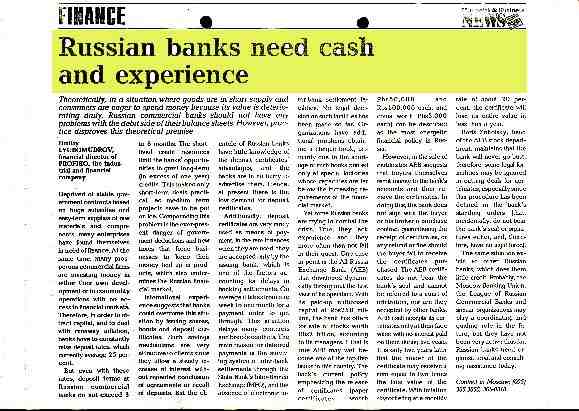![]()
Publications. Financial Articles : # 8
| Russian banks need cash and experience | |
 |
Article in the Newspaper
"Financial & Business News", # 2, January 1992, page 6. Author - Dmitry
Lyubomudrov
|
![]()
Theoretically, in a situation where goods are in short supply and consumers are eager to spend money because its value is deteriorating daily, Russian commercial banks should not have any problems with the debit side of their balance sheets. However, practice disproves this theoretical premise
Dmitry LYUBOMUDROV- financial director of PROFIKO, the industrial and financial company